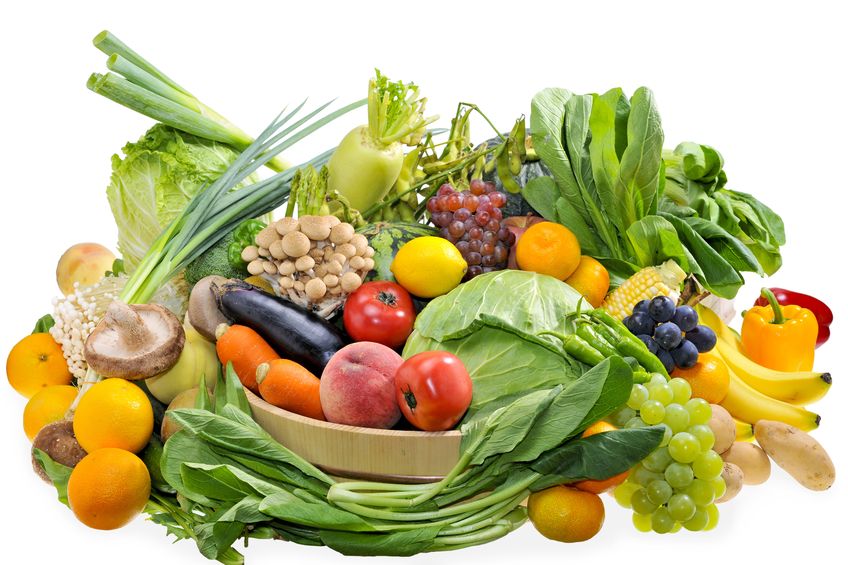What is in a heart healthy diet? If you want to feel good about what your next grocery trip will do for your heart health, you can grab these types of food for a heart healthy diet.
Your heart has a big job: It’s responsible for moving blood throughout the body, maintaining your blood pressure and keeping you alive. Since the heart is such a vital organ, it needs to stay healthy — and your diet plays an important role in that.
Everyone from the American Heart Association to the US Department of Health and Human Services recommends making specific food choices to support a healthy heart. Because foods for heart health can reduce other potential cardiovascular issues — like high blood pressure and high cholesterol — it’s worth keeping that in mind as you plan your weekly meals.
According to the AHA and Department of Health, a heart healthy diet is rich in:
• Produce
• Lean proteins
• Fiber-rich complex carbs
• Healthy fats
A diet full of colorful fruits and vegetables, whole grains and healthy proteins and fats will give your body the fiber, vitamins and minerals it needs to support a healthy heart.
What to Eat for a Heart Healthy Diet
1. Fruits and vegetables
Remember the food pyramid from back in the day? It was on to something. Your body benefits from eating quite a bit of produce.
That’s because veggies and fruit load in a lot of nutritional density per bite. Bananas and sweet potatoes deliver potassium, a key mineral for heart health. Cruciferous veggies may help to prevent clogged arteries. Leafy greens deliver fiber, which can help to lower cholesterol and blood pressure.
Long story short, the more produce you’re packing in, the better. And if fresh produce doesn’t work for your budget or your lifestyle, don’t worry. You can get plenty of nutritional benefits from frozen, dried and canned options. Just make sure they’re marked low-sodium.
2. Whole grains
Not all carbs are bad. Refined carbs like the ones in white bread fly through your body, usually doing you more harm than good. But complex carbohydrates, like the ones you’ll find in whole grain products, deliver fiber, which we’ve already mentioned as a heart health booster.
Plus, they often come packed with vitamins and minerals like iron, selenium, thiamin (vitamin B1), riboflavin (vitamin B2), niacin (vitamin B3), folate (vitamin B9) and magnesium. If you’re looking for a heart-healthy diet, choose products that have whole grains in their ingredient list. Plus, complex carbs can also be found in beans, potatoes, peas and corn.
3. Lean and plant protein
While certain proteins — like red and processed meat — can be hard on your heart, others top the list of foods for heart health. The key here is to look for plant-based protein, lean animal proteins and fish. Experts recommend mixing up your protein sources. So you have plenty of options, stock up on:
- Lentils
• Beans
• Nuts
• Seeds
• Tofu
• Fish, especially ones high in omega-3 fatty acids
• Eggs
• Low-fat dairy products
• Poultry
• Seeds
Swap some of your red meat and cured pork for the options above and you’ll be doing your heart a favor.
4. Healthy fats
You might think that fat spells heart trouble, but it’s all about the type of fat. While trans and saturated fats have been linked to cardiovascular issues in numerous studies, your body, including your heart, needs healthy fats. You can get these from fish, nuts and seeds, along with avocados and moderate amounts of plant oils like:
• Olive oil
• Sesame oil
• Sunflower
• Soybean oil
• Canola oil
• Corn oil
• Safflower oil
As a general rule of thumb, if the fat would be solid at room temp, it’s probably saturated. If it would be a liquid, it most likely falls under the unsaturated variety. Think butter (controversial for health) versus olive oil (definitely part of a heart-healthy diet).
5. Heart-check foods
The American Heart Association has certified certain foods for heart health and given them the Heart-Check seal, which you can find on some food packaging. Once you learn that seal, it can make it easier to stock your cart with foods for heart health.
For the best results, pair your heart-healthy diet with other heart health boosters like regular exercise, sleep and stress management techniques. It can also be helpful to learn your blood type and what it means for your risk of specific cardiovascular conditions.
Click here to learn more about a heart healthy diet.






